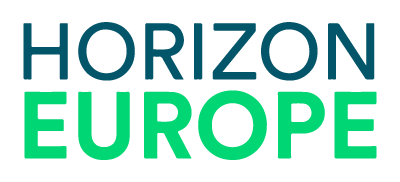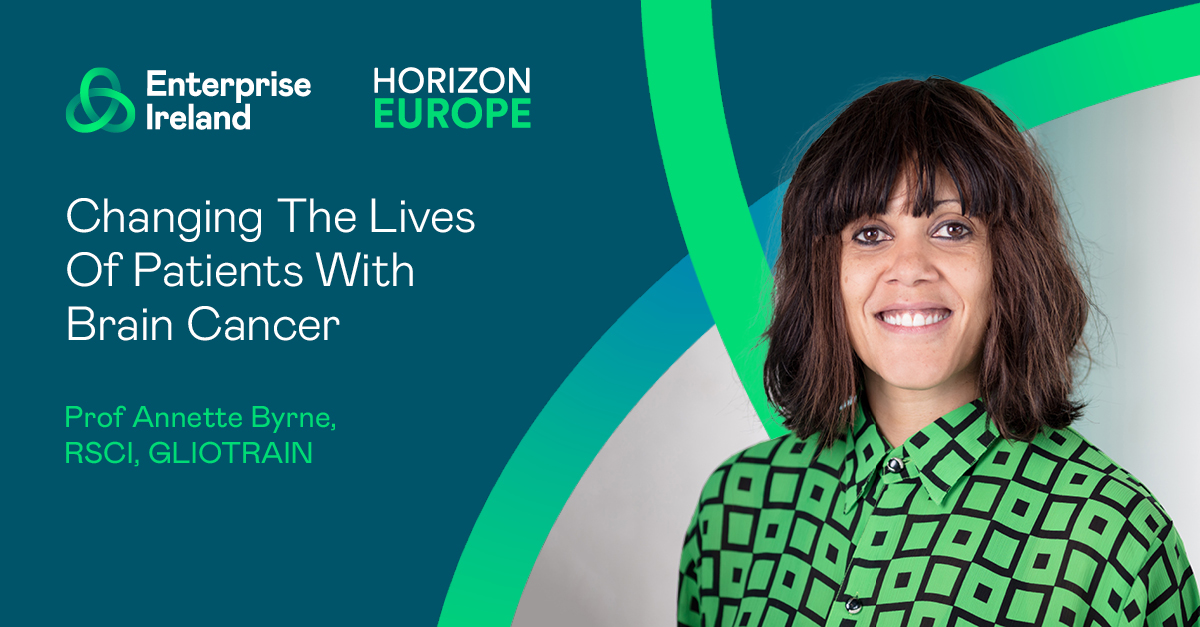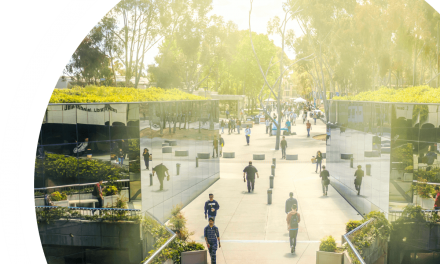Glioblastoma (GBM) is the most common and aggressive form of adult primary brain cancer, for which there is currently no cure. Sadly, 85% of patients diagnosed with this cancer die within two years, even with aggressive treatment. GBM is particularly difficult to treat due to how fast it grows, the way the cells penetrate brain tissue, gene mutations and other challenges.
The Marie Skłodowska-Curie Actions (MSCA) funded GLIOTRAIN project brought together leading European and US academics, clinicians, private sector and not-for-profit partners. Led by Professor Annette Byrne at the Royal College of Surgeons in Ireland and managed by Dr Alice O’Farrell, it sought to improve treatment outcomes for GBM patients through the identification of novel therapeutic strategies and to unravel disease resistance mechanisms. Furthermore, the project sought to to address European applied biomedical research training needs through the training of 15 PhD candidates.
Enabling 15 candidates to achieve PhDs
The €3.8m project was a four-year Horizon 2020-funded Marie Skłodowska-Curie Actions European Training Network programme. Running from 2017 to 2021, the project involved eight multi-disciplinary, cross-sectoral beneficiaries and 14 partner organisations from Europe and the US. €1.26m of the total funding awarded went to Ireland.
The 15 PhD candidates, four of whom were based in Ireland, received world-class training in brain tumour research and key transferable skills. Each PhD candidate funded through the project worked on an individual research project aimed at identifying new treatment strategies or understanding how this cancer resists treatment.
Enabling a new cadre of specialist scientists
The project implementation was not entirely straightforward, with the management team having to manage unexpected challenges. This included key personnel leaving the consortium, new partners joining and the pandemic upending plans relating to mobility.
Nevertheless, GLIOTRAIN proved a huge success, with the participants trained across translational research, medicine and computational biology. In addition, as a result of the project, 21 papers were published, including one in the prestigious Annals of Oncology journal.
The value of networking and expertise
Key to developing a successful project consortium is meeting people in person, says Byrne. “If at all possible, meet people face to face. I have flown to Belgium to meet someone for coffee for half an hour. Networking is vital. And once you have had one grant and have built a consortium, it becomes a virtuous circle and your network grows exponentially.”
She adds that it’s important to complete every section of the EU call document to the best of your ability. “If it’s not your area of expertise, you cannot ignore it,” she says, “you have to fill it out as though your life depended on it. I have evaluated tens, if not hundreds, of applications and the people who get funded get top marks in each section. If a section is not your area of expertise, find an expert to help you”.
Avail of all possible support
Both Byrne and O’Farrell agree a full-time project manager is vital. “First, there is writing the application, which is no joke,” says Byrne, “and once you get the grant, managing the project for four years is not straightforward. We have put in huge hours – you really have to be willing to put the work in.”
It’s also important to seek other support whilst writing the proposal, adds O’Farrell. “You need to ask people to help you. Eight or nine people looked at our proposal, from consultants, partners and the MSCA National Contact Point, to our research office. It takes a village to write it.”
“We are also extremely grateful to Enterprise Ireland,” adds Byrne, “as we would not have achieved these EU grants without their advice and funding, which meant we could get consultants to help us write it and travel to meet project partners.”
Building on GLIOTRAIN’s success
The project team has subsequently secured an EU Horizon Europe grant, with funding of €2.6m, for a follow-up MSCA Doctoral Networks project ‘GLIORESOLVE’. “Having scored 99.2/100 on our funding application, we have another 10 students taking part in the new project, so overall we will have contributed 25 new brain cancer research specialists to European Research,” says Byrne.
She added that the success of GLIOTRAIN has seen doctoral candidates apply for the GLIORESOLVE programme from highly prestigious international universities, including Harvard and Johns Hopkins.
Moreover, the project has also really helped embed her team’s connections with clinical colleagues in the National Centre for Neurosurgery at Beaumont Hospital in Dublin and around Europe.
That is not the only network that has arisen from the project, says O’Farrell. “Obviously, the students are also now part of an automatic cohort of scientists of the future who know each other. They don’t work independently, but together, and some have worked on joint publications.”
Furthermore, the EU funding has also helped to encourage entrepreneurial innovation as one of the students from GLIOTRAIN has set up two companies.
“Ultimately,” says Byrne, “the success is that this project is leading to research and development that will really affect patients’ quality of life.”
If you would like advice about accessing Horizon Europe support or further details, please contact horizonsupport@enterprise-ireland.com or visit www.horizoneurope.ie





